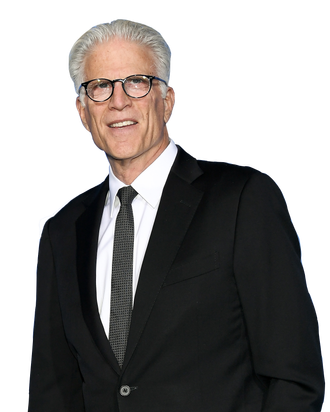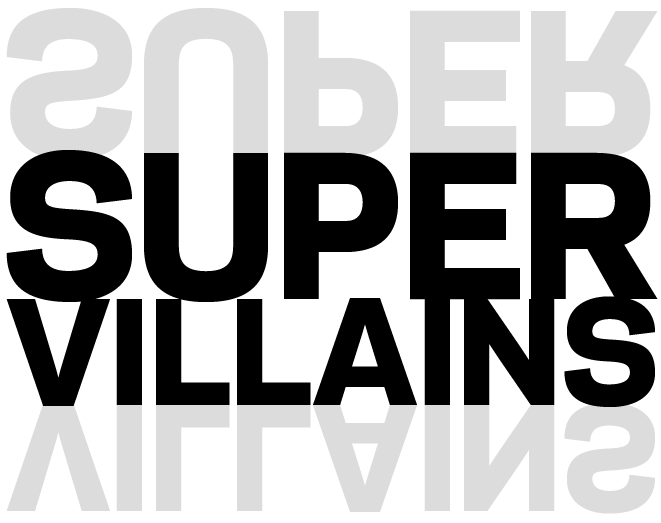
In an age of superhero movies and TV anti-heroes, fictional villains are more complex than ever before. This week, Vulture examines villainous entertainment in all its forms.
When The Good Place ended its freshman season on NBC earlier this year, the final moments spectacularly revealed something that is perhaps best described as a forkin’ great twist: Michael, the eccentric and good-natured “architect” of the heavenly Good Place, played by Ted Danson, is actually a conniving son of a bitch who’s been torturing the four protagonists in a beta version of a new and improved Bad Place. It was a gut punch of a twist — which was only more heightened by Michael’s bone-chilling laughter when he’s exposed — and truly nobody saw it coming. Vulture recently called up Danson to discuss the big revelation, his love for playing evil characters, and why the series edged out Westworld in the twist department.
I’d love to know how Mike Schur pitched the show to you, since it’s not a standard comedy that you find on network television these days.
I met him and another writer previously about a different project, and just listening to Mike talk I was so enthralled by how bright and articulate and creative he was. I was really interested in him. I wasn’t sure I wanted to do that project at the time, but before he left he said, “Do you have anything else lined up? I’d still love to talk.” He came back with The Good Place. I knew he had talked to Kristen Bell, so immediately I was interested because we were friends and I have a lot of respect for her and her decision making. She’s very bright; a good buddy. So I sat and I listened for an hour about this amazing tale. Some places Mike hadn’t filled in yet, but it was such a real and bright conversation — he ended our conversation with, “Don’t worry, it’ll be great.” [Laughs.] At the end I only had a few questions, because throughout the whole season Michael has to play a game with one hand tied behind his back, if you will, because he has to keep this secret from the four humans. But also from the TV audience. So I was curious about how we can’t reveal this other side of this character. We had this great conversation, and basically after one hour, after watching Mike talk, Kristen and I said yes without even seeing the script. It was all about Mike and his credentials.
Now that Michael is revealed to be this villainous overlord, how will your performance change in the upcoming season?
I knew the whole story from the beginning, with Kristen and with the writers, of course. But no one else knew. So, how it’s changing now? It’s just delicious. It’s fantastic going from this sweet, kind architect of the Good Place who as soon as the humans leave the room can turn around and have hysterics about how silly and stupid they are, and how much fun he has torturing them. There’s so much more room for humor. He’ll be sandwiched in between his bosses in the Bad Place and his desire to fool the four humans into thinking they’re in the Good Place. It’s wonderful. We’re about halfway through shooting the second season, it’s packed with great twists and turns and funny stuff. We’re no longer trying to create this new world, we’re just having a lot of fun.
Have you found it more enjoyable to play a villain, compared to the eccentric good guy we first met?
Sure, it’s always fun to play the bad guy. It’s hard to be politically correct in life as well. It’s much more fun to be a little naughty. I would watch the show last year and sometimes I’d look at myself and be like, “Wow, either that’s some of the worst acting I’d ever seen, or good. I can’t tell.” [Laughs.] Usually you learn something about a character from their private moments. And Michael had no private moments or else you would’ve seen him smirking or laughing or giving it all away. You just saw him pop in as this enthusiastic, bumbling middle-management architect, kind of one note, in a way. But I just loved that it worked. We made it all the way and fooled pretty much everybody into a surprise that I thought was very well worth it. It was great fun. We discovered there was so much social media after the last episode!
Were you surprised by how well that twist landed? It was so unexpected, I didn’t know a single person who predicted it.
No, neither did I! It was great; really satisfying. You get so busy playing what’s in front of you, that I was delighted and surprised as well. I didn’t have any idea until, like, a month or so after the finale aired where people kept telling me how much of a stir it caused.
It must have been pretty satisfying to know that you pulled off a more fulfilling twist then, say, a big-budget prestige drama like Westworld, where people knew exactly what was going to happen two or three episodes in.
I haven’t seen Westworld, but I hear it’s horrible.
I think all credit goes to Mike. He developed, purposely, at the end of every episode that there would be a big twist. After episode three or four, you find out Eleanor was the problem and she confessed. So after every episode there would be this big, left-hand turn that would take the audience by surprise. So I think the fact that there were constant surprises kept people from thinking about the big surprise to come, you know? That was very clever. And the fact that there were only 13 episodes helps. It was something both Kristen and I wanted, as actors with families. And Mike loved the idea of doing 13, because as a writer, you can tell a story with 13 chapters and that’s compelling. When you’re doing 22, six or seven of them you’re kind of vamping. It’s too hard to keep going, telling a story from the beginning, middle, and end for 22 episodes.
We need to talk about your Emmy-worthy, maniacal giggle-laugh when Michael’s true intentions are exposed. How did you perfect that chilling moment?
[Laughs.] We tried a whole mess of different approaches. Mike was directing that episode, which was important because the creator was there, creating with you. So we weren’t trying to quite guess what Mike was thinking, we were trying to … get those exploratory feelings. I’m not sure how the laugh happened. It was just one of those wonderful moments, I’m not sure if it came from me or Mike or Kristen. Everybody was ready for that when it happened. It set the tone for me, realizing that Michael just wants to have fun. [Laughs.]
Did you ever think up your own backstory for Michael, like how exactly he ended up as an architect in the Bad Place?
No, just because this world is so complicated and comes from Mike’s imagination and the writers that it would be kind of pointless to go off on your own. Backstories are fun, but only matter if they can impact your performance. When you know the beginning, middle, and end, then a backstory can be helpful. But on this show, you’re constantly walking in with a new script with a new backstory and a new revelation on who you are. You’re constantly discovering.
As you and Kristen were the only actors Mike told about the twist from the beginning, how in the world did you keep that secret from everyone else? I’m sure I would’ve told everyone I knew if I was in your position.
When I first was pitched it … you know that phrase that originated in World War II, “loose lips sinks ships”? I was the original loose lips. I couldn’t stop telling people. When people asked me about the project, I would be like, “I play an architect in the Good Place and it takes place in the afterlife.” And they would be like, “Oh, that’s not interesting,” like it was going to be a normal show set in heaven. Part of me wanted to yell at them that they weren’t impressed when they should be. I had to spill the beans just to impress them! [Laughs.] I did that, I think, three or five times, and then I quickly called them all back and was like, “Oh dear god, please don’t tell anybody, goddammit.” It was hard not to tell.
When I talked to Kristen earlier this year, she mentioned that she now has a newfound appreciation for philosophy and ethics after filming the first season. Do you feel the same way?
Nope. [Laughs.] It’s weird, if a character had an ability that I don’t have, then yes, I’d go off and try to learn how play the bagpipes or whatever it is that’s necessary for the role. I’d practice and rehearse and try to make that a part of something I can make look natural. But nowadays I feel like if I say the words, and work with the words over and over and over again, if I take what the character’s saying and it’s really real and true for that character —those words are true and real — then it’ll start to have an impact on me and how I behave by just saying it.
If I, right now, in this conversation, started screaming at you and started calling you names and then hung up, if I would be good ol’ sweet Ted Danson in the middle of the conversation and then flipped out, I would forever be different by that action — very weird, rude, something. I … let the actions that I get to do have an impact on me. But then Kristen Bell has been sitting there listening to William Jackson Harper, who plays Chidi, roll off these monologues filled with philosophical ideas and ethics that are really well-researched by the writers, so it doesn’t surprise me that she feels that way. But let me add one thing about Kristen Bell: She’s one of the most ethical people I’ve ever met, just right off the bat. So I don’t think it’s a stretch to learn about ethics, because she’s truly a wonderful creature who’s ethical. What you see is what you get. She’s funny, bright, quick, interested in her husband and her children and The Good Place, and everything is in the right proportion with her.
Do you also have a greater fondness for bow ties now? Michael’s bow ties are pretty fabulous.
You’ll have to admit, if you see someone with a bow tie, that person is just a little bit different in your eyes forever. [Laughs.] It’s a little bit off, is how I see it. When I started having fittings before rehearsals began, I had no idea I would be wearing them. I tried a bunch on and I’m like, “I’m a guy who wears a bow tie, I got it, say no more!”



